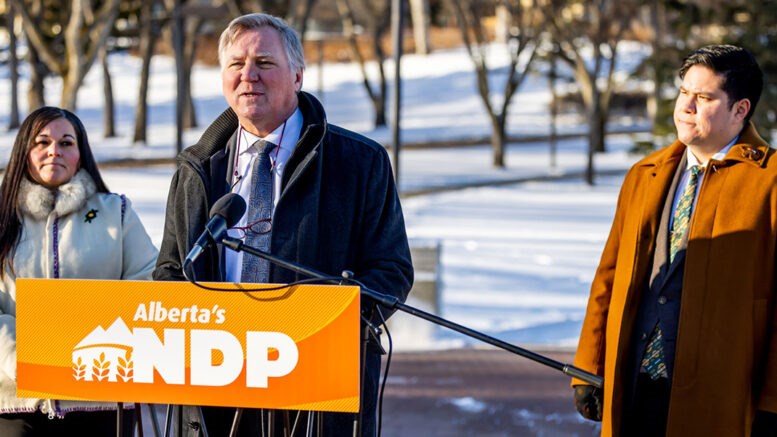(ANNews) – Alberta’s NDP Opposition has joined a chorus of Indigenous leaders in calling Premier Danielle Smith’s signature Alberta Sovereignty Within a United Canada Act a blatant violation of Treaty rights.
The legislation, also known as Bill 1, was passed in the early hours of Dec. 8. It gives the provincial government authority to ignore federal laws it deems to be in violation of the Canadian Charter of Rights and Freedoms or provincial jurisdiction.
Chief Tony Alexis of Alexis Nakota Sioux Nation in Treaty 6 told the Calgary Herald the legislation is “alarmingly open for interpretation, it is too uncertain and its impacts potentially too harmful and widespread.”
Multiple First Nations leaders have said they weren’t consulted in any capacity on the bill.
Richard Feehan, the NDP’s Indigenous relations critic, told Alberta Native News the fact that the UCP government didn’t consult with any Indigenous leaders before drafting the legislation is a “fairly clear violation of the duty to consult on behalf of the Crown, because [Bill 1] clearly affects Treaty rights.”
Despite Sec. 2(C) of the Bill saying it will not violate Treaty rights, Feehan said the “rest of the bill goes on to do exactly that.”
“It’s like when somebody says to you, ‘I don’t mean to be insulting, but you’re kind of ugly.’ Saying this is not what you think it is, and then doing it does not change the nature of the assault,” he said.
But it’s not just a lack of consultation that makes the bill illegitimate from an Indigenous relations perspective, “it’s the issue of all of the work that’s been done over 100 years by First Nations to protect their control over their sovereign land — over the air, land and water,” Feehan added.
Treaty agreements were made with the Crown, which is represented by the federal government, so Bill 1 subjects these rights to interference from another level of government, he said.
“You’ve made all of your contractual arrangements with the Crown through the Treaties and all the subsequent enactments of that, and all the many hundreds of court cases that have helped to define what it means and where it applies,” Feehan said.
“All of that now is suspect from the provincial government’s point of view. And so that’s literally 100 years worth of work by the First Nations that has now been brought into question.”




